Articles in Periodicals
Oil, Politics, and Conflict in the Niger Delta: A Nonkilling Analysis
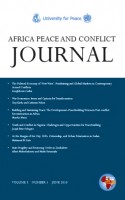
Summary: A dominant feature of the discourse on the Niger Delta is the role oil plays in politics and conflict in the region. Oil revenue is a motivating factor for the posture of the political class at the national level and is implicated as a cause of violence during elections and in ongoing violence and killings in the delta. Applying Glenn D. Paige’s nonkilling political analytical tool to Nigeria’s current situation indicates that oil-related killing in the Niger Delta is the result of a lack of vision of nonkilling leadership and politics by the state and non-state actors. Only a nonkilling approach to governance and the politics of oil production and distribution of benefits, however, can bring lasting solutions to the conflict in the delta between local justice and environmental groups confronting the actions of the federal government and oil companies.
Download «Oil, Politics, and Conflict in the Niger Delta: A Nonkilling Analysis» [1.22 KB]
Bases transformacionais para um novo paradigma do não matar
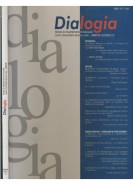
Summary (in Portuguese): O termo “não matar”, como apresentado por Paige (2002; 2009), faz referência a uma sociedade onde as mortes intencionais, ameaças de morte intencional e condições que possam levar a mortes intencionais estejam ausentes. Este marco descreve uma transformação profunda para a superação das premissas e presunções sociais fortemente arraigadas na aceitação generalizada da letalidade (em todas as suas formas), assim como a refutação da ciência majoritária que aceita a letalidade, desde as ciências biológicas até as humanidades. O não matar propõe um câmbio de paradigma total (seguindo a Kuhn, 1962), com novos princípios, nova linguagem, novos valores, novos critérios metodológicos e novas ferramentas para a análise dos problemas de pesquisa. Este trabalho apresenta esta nova perspectiva e os fundamentos para a transformação empírica e normativa para um outro paradigma que ela traz associada.
Download «Bases transformacionais para um novo paradigma do não matar» [315.69 KB]
Makings of a Nonkilling World
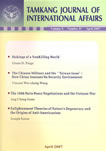
Summary: Must killing be a modus vivendi in human affairs? Is nonkilling too far-fetched? Most of us believe that killing is not desirable. Yet humankind continues to kill incessantly, ruthlessly. Why? In the pages that follow, Glenn D. Paige, professor emeritus of political science at the University of Hawai’i and the founder and president of the nonprofit Center for Global Nonviolence, cuts to the chase and takes us through the gamut of problems and issues relating to killing/nonkilling, and provides us with extensive documentation and arguments from various perspectives.
Download «Makings of a Nonkilling World (Introduction by Marshall Sheen)» [182.93 KB]
De-escalating Media Language of Killing: An instructional module
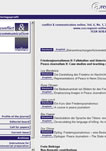
Summary: Harnessing substantial academic reseach and citing the first comprehensive summary of violence on a global scale undergirds this online article that elaborates on a companion web-based resource to be posted at www.toda.org. These twinned online productions examine the role of the media in producing a culture of violence and seek to curb its extent and effects. This article and the accompanying webcast describe the approach of Professor Emeritus Glenn Paige, author of Nonkilling Global Political Science, which has been translated into 25 languages. He urges greater media awareness about the importance of: avoiding the inappropriate use of the language of killing and, alternatively, avoiding the use of euphemisms to gloss over or cover up examples of violence. Paige’s arguments and this online article suggest five recommendations for future action.
Download «De-escalating Media Language of Killing: An instructional module» [124.17 KB]
The Basis of the Nonkilling Belief
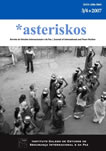
Summary: This essay is nothing more than an appeal to human beings everywhere to take active responsibility to protect human life in all thoughts, words, and deeds. There is no higher moral calling because morality implicates life and the protection of life in its most fundamental definition. It seems that in the management of human affairs, we think and behave as though morality is dependent on our ability to plan and choreograph dangerous killing behavior – perhaps to outkill someone else or to purge ourselves from our own lives.
Korean Leadership for Nonkilling East Asian Common Security
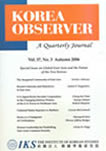
Summary: The concept “nonkilling” is not a customary term in political science but there are grounds for confidence that nonkilling human societies are possible and that political science and related disciplines can play a constructive role in bringing them about. This paper suggests that Korean scholars and leaders have a unique opportunity to explore the implications of nonkilling security theory for the future well-being of the united Korean people and for Korea’s transforming leadership contribution to Nonkilling East Asian Common Security1 and a nonkilling world.
Download «Korean Leadership for Nonkilling East Asian Common Security» [143.24 KB]
Special Issue on Glenn Paige and Nonkilling Political Science
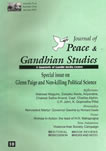
In Journal of Peace and Gandhian Studies, Vol.5, No. 1 (2004).
Summary: Professor Glenn D. Paige is one of the foremost champions of the movement for a new Nonviolent International Order which will gradually eliminate violent structures from contemporary lives. He has been vigorously promoting the concept of nonkilling society and global nonkilling political science. This Special Issue on Glenn Paige and Nonklling Global Political Science of the Journal of Peace and Gandhian Studies gathers texts by twenty authors discussing the possibilities of a nonkilling world.
A Nonkilling Korea: From Cold-War Confrontation to Peaceful Coexistence
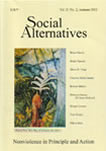
Summary: Is a nonkilling Korea possible? If not, why not? If yes, why? But what is meant by a ‘nonkilling Korea?’ For present purposes let it be Korea, people and peninsula, distinguished by the following characteristics: No killing of Koreans by Koreans and no threats to kill; No killing of Koreans by foreigners – Americans, Chinese, Japanese, Russians, various UN contingents, or by any other people – and no threats to kill; No killing of foreigners by Koreans or threats to kill; No weapons for killing targeted by Koreans against each other, by foreigners against Koreans, and by Koreans against foreigners; No ideological doctrines – political, religious, military, economic, legal, customary, or academic – that provide permissions for Koreans to kill Koreans, for foreigners to kill Koreans, and for Koreans to kill foreigners; and No conditions of Korean society – political, economic, social, and cultural- or relationships between Koreans and foreigners that can only be maintained or changed by threat or use of killing force.
Download «A Nonkilling Korea: From Cold-War Confrontation to Peaceful Coexistence» [96.39 KB]
殺戮なき朝鮮半島-朝鮮半島における平和構造の構築-(“Nonkilling Korea: Building a Peace Structure on the Korean Peninsula”)
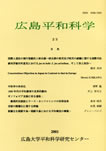
Summary: Is a nonkilling Korea possible? If not, why not? If yes, why? But what is meant by a ‘nonkilling Korea?’ For present purposes let it be Korea, people and peninsula, distinguished by the following characteristics: No killing of Koreans by Koreans and no threats to kill; No killing of Koreans by foreigners – Americans, Chinese, Japanese, Russians, various UN contingents, or by any other people – and no threats to kill; No killing of foreigners by Koreans or threats to kill; No weapons for killing targeted by Koreans against each other, by foreigners against Koreans, and by Koreans against foreigners; No ideological doctrines – political, religious, military, economic, legal, customary, or academic – that provide permissions for Koreans to kill Koreans, for foreigners to kill Koreans, and for Koreans to kill foreigners; and No conditions of Korean society – political, economic, social, and cultural- or relationships between Koreans and foreigners that can only be maintained or changed by threat or use of killing force.
Download «Nonkilling Korea: Building a Peace Structure on the Korean Peninsula» [1.04 MB]
Political Science: To Kill or Not to Kill?
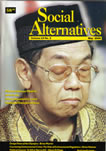
Summary: Each reader is first asked to reflect upon the question: “Is a nonkilling society possible?” If not, why not? If yes, why?. For the purpose of the question, a nonkilling society is taken to be a human community from smallest to largest encompassing all humankind that has the following characteristics: There is no killing of humans, at least, and no threats to kill. There are no weapons for killing (“hardware”) and no legitimisations, justifications, or permissions to kill (“software”). And there are no conditions of society that depend for maintenance or change upon the threat or use of lethal force. That is, a nonkilling society is taken to be one in which humans neither kill nor threaten to kill each other
Download «Political Science: To Kill or Not to Kill?» [552.83 KB]
The Case for Nonkilling Global Political Science in Service to Nonkilling Global Transformation
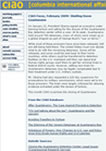
International Studies Association Working Paper.
Summary: Prepared for the panel on “Nonkilling Global Political Science,” organized and chaired by Professor Burton M. Sapin, at the 41st Annual Convention of the International Studies Association, Los Angeles, California, March 14-18, 2000. For this purpose a nonkilling society is taken to be a human community from smallest to largest encompassing all humankind that has the following characteristics. There is no killing of humans, at least, and no threats to kill. There are no weapons for killing (“hardware”) and no legitimizations, justifications, or permissions to kill (“software”). And there are no conditions of society that depend for maintenance or change upon the threat or use of lethal force. That is, a nonkilling society is taken to be one in which humans neither kill nor threaten to kill each other (…).
不殺生: 韓半島에서의 平和體制 構築을 위한 提言 (“Nonkilling Korea”)

Summary: Let us approach the problem of peaceful reunification of Korea in its Northeast Asian and global context from a nonkilling political science perspective. In contrast to conventional political science which is based on the assumption that readiness to kill is essential for social well-being, nonkilling political science departs from the assumption that a nonkilling society is possible. This is a society in which there is no killing of humans and threaths to kill; no weapons specifically designed to kill humans and no legitimizations for using them; and no conditions of society that depend upon threat of use of killing for mainteance or change.
Download «Nonkilling Korea (March, 1997; revised Korean translation)» [129.37 KB]
“To Leap Beyond yet Nearer Bring”. From War to Peace to Nonviolence to Nonkilling
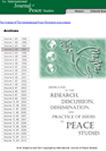
[first published in Peace Research. Canadian Journal of Peace Studies, Vol. 28, No. 4 (1996)]
Summary: We “leap beyond,” hopefully Nearer [to] bring,” by raising a question. As Bertrand Russell has observed, “Philosophy begins when someone asks a general question and so does science” (Russell,1977: 10). The question is, “Is a nonkilling society possible- If not, why not- If yes, why- Since a “nonkilling society” is not a common term in English or perhaps in any other language, we need an initial explanation. Let us take it to be a society with three defining characteristics, each with two parts. First, there is no killing of humans and no threat to kill. Second, there are no weapons specifically designed to kill humans and no justifications for using them. And third, there are no social conditions that depend upon threat or use of killing force for maintenance or change.
